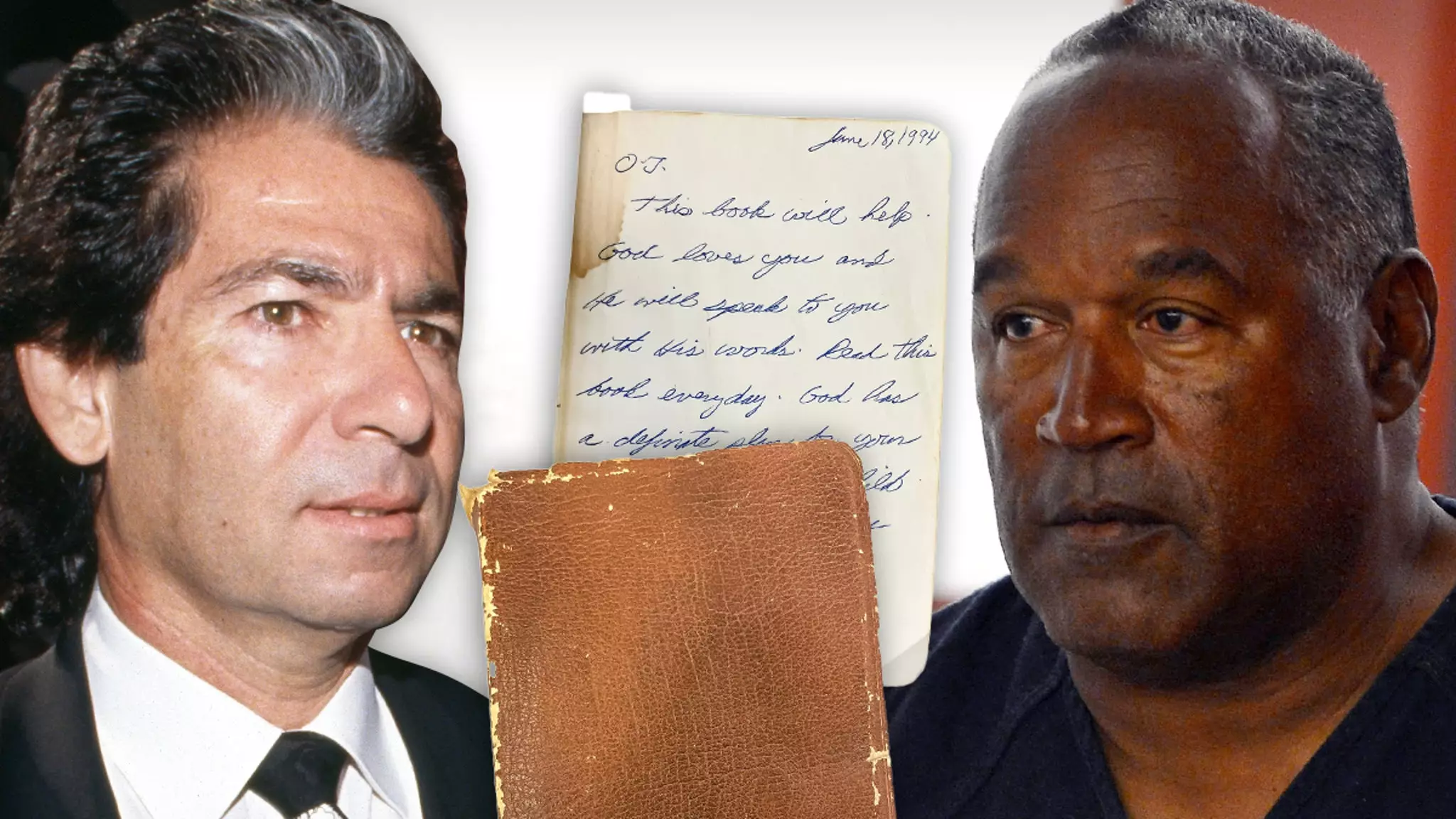The recent auction of Robert Kardashian’s signed Bible, once gifted to O.J. Simpson, has ignited a firestorm of conversation about cultural memory, celebrity status, and the monetary value assigned to personal relics. Originally intended as a gesture of friendship, this Bible fetched an astonishing $80,276 at auction, far surpassing Kim Kardashian’s offered bid of $15,000. This notable discrepancy raises a crucial question: what makes an object like this worth so much more than its face value?
In the public eye, O.J. Simpson is a figure steeped in both admiration and animosity. The duality of his legacy plays a significant role in driving up the demand for memorabilia associated with him. Malcolm LaVergne, representing Simpson’s estate, pointed out that “whether you loved O.J. or hated him, it’s clear his legacy endures.” Such sentiments reflect a society continually fascinated by the complexities of celebrity narratives—particularly those intertwined with scandal and legal battles.
Contextualizing the Auction’s Sales Figures
The auction itself garnered an impressive estimated $300,000 in total sales, a figure that testifies to the lucrative intersection between celebrity memorabilia and a ravenous public appetite for stories from the past. Alongside the Bible, other notable items included a signed photograph of Simpson with former President Bill Clinton, which went for over $18,000, and a replica of his iconic 1968 Heisman Trophy, selling for $42,700. Each transaction highlights the bizarre reality in which historical narrative and financial worth amalgamate, leaving collectors trapped between emotional attachment and commercial ambition.
Importantly, this auction was initiated in the wake of O.J. Simpson’s death, signifying not only the end of an era but also an attempt to settle outstanding debts left in his wake. LaVergne has expressed a desire to work with Simpson’s creditors, including Fred Goldman, whose pursuit of justice culminated in a civil suit that imposed a staggering judgment against the former NFL star. The juxtaposition of selling mementos for profit while navigating the still-fresh wounds of tragic loss is a stark reminder of how deeply intertwined public persona and private pain can become.
The Cultural Implications of Modern Memorabilia
The sale of memorabilia relating to infamous figures like O.J. Simpson invites us to reflect on our values as a society. Is the obsession with these relics a testament to the enduring fascination with the darker sides of celebrity culture? Or does it signify a deeper longing for connection to stories that, while tragic, reveal the human experience in all its complexity?
Consumers flock to these items not purely for their aesthetic appeal but as symbols of a shared cultural moment—one that encapsulates tragedy, notoriety, fame, and, quite frankly, the essence of flawed humanity. In a world increasingly defined by the nuances of storytelling, each auctioned piece serves as a reminder of the delicate balance between reverence and exploitation in our treatment of history. The auction results suggest that, while O.J. Simpson’s legal battles may be settled, his cultural legacy is anything but resolved, promising to linger in our collective memory for generations to come.

